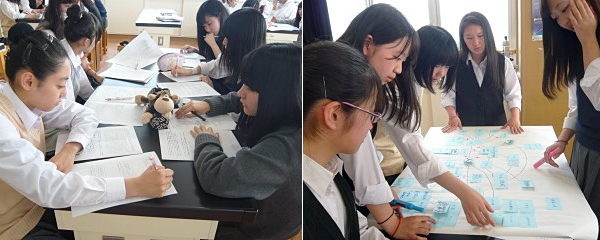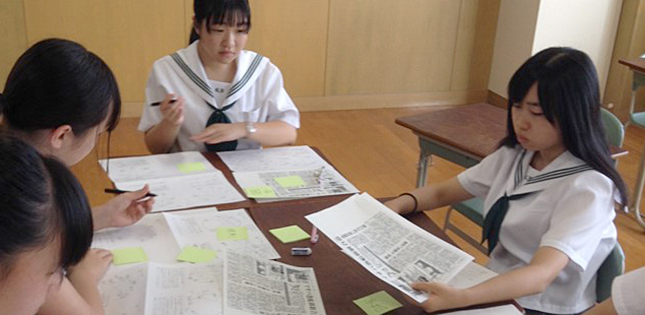Most countries around the world have recognized the importance of overhauling education systems over the past three decades. Developed countries are moving towards a more student-centered approach that values inquiry-based learning in order to equip their students with the tools they will need both in life and in their careers. However, it is equally important to be able to assess how effective these new methods are.
Japan is no stranger to the importance of having a complete and effective education system that addresses the needs of global citizens in the 21st century. Since the early 1990's, the country has taken several steps to increase its students' knowledge, skills and competencies. For example, it encourages collaborations between high schools and universities. Professors visit high schools and advise students on research and presentations, while also working with teachers to develop assessment and grading tools.
But, say researchers Yasuko Shimojima from Tokyo Gakugei University and Masahiro Arimoto at Tohoku University, the country needs to assess its approaches and the effect they've had within the realities of Japanese culture.
They stress the need for diverse assessments that link between junior high, high school and universities. Teachers in school should also be supported to introduce new teaching methods and assessment tools to their classes, whereas right now they are overloaded with teaching and managing classes.
"We need to empower the students to be able to assess their own work, and also encourage peer assessment, by giving them the tools by which their own work will be evaluated," said Arimoto.

Photos courtesy of Yoshihisa Nomi and Goshono Gakuin High School
In order to make this learning assessment effective, however, Japan needs to take two steps back in order to teach students, teachers, and parents how to make use of rich assessment features so that the feedback is relevant and useful.
Japan already has a culture that supports assessment, which gives it an edge as it develops these tools. From setting aside time for reflection and understanding and building a close relationship to them, some forms of group assessment are already part of Japanese understanding in education systems. Having evolved in a society that values compassion and cooperation, there is a willingness between parents and community members to be co-regulated with children.
Shimojima and Arimoto argue that building on these Japanese traits, and combining them with Western culture approaches that value innovation, creativity and independence, would produce a symbiotic effect. It may be tricky, but this would help produce a new generation of Japanese students who are equipped to face a global future.
- Publication Details:
Title: Assessment for learning practices in Japan: Three steps forward, two steps back
Authors: Yasuko Shimojima and Masahiro Arimoto
Journal: Assessment Matters 11: 2017
DOI: 10.18296/am.0023
Contact:
Masahiro ArimotoGraduate School of Education
Email: arimoto@sed.tohoku.ac.jp

